- Home
- James Rollins
Bloodline: A Sigma Force Novel Page 8
Bloodline: A Sigma Force Novel Read online
Page 8
Once here, the hood had been removed, and she’d been ordered to strip down to bra and panties and been thoroughly searched again. Afterward, her wounded hand had been tended to, though blood still seeped down her fingertips and dripped to the floor. They’d allowed her to slip her clothes back on, but she still felt half-naked.
She tugged at the plastic slip ties that bound her to a metal chair. She tried rocking, but her seat was bolted to the concrete floor.
Resigned, she silently cursed her carelessness—placing an equal amount of the blame on Gray.
If the bastard hadn’t gone off so recklessly on his own …
But she knew she bore as much guilt. She had acted no less rashly than Gray. And that troubled her, especially since she knew the cause. She remembered that kiss in the hospital, both needing each other but for very different reasons. Her carelessness this night was born out of that kiss. Fear for his safety, worry that she’d lose him, blinded her and made her sloppy.
She should have known better than to run headlong into a back alley. Hadn’t their premission briefing warned of the rash of kidnappings in the city? The only balm to her ego was that her captors hadn’t been pirates.
The single door to the room finally opened. Two figures stepped inside. One carried a thick file folder; the other, a chair identical to her own. The seat was placed in front of her, and the man who had ambushed her in the alley sat down, resting a file on his knee. He had short sandy-blond hair, balding at the top, ruggedly handsome in his own way.
His companion—a slender Indian woman with mocha skin and smoky eyes—took a post behind the chair, stiff-backed, one hand resting on a holstered sidearm. Like the man, she was dressed in khaki pants and a buttoned blue blouse, all crisply creased, giving the casual clothes the look of a uniform.
Seichan locked eyes with her. “You were one of the three following us this evening, wearing the green sarong.”
The woman gave no reaction.
Seichan glanced between the two. She spotted an older photo of her, grainy but unmistakable, clipped to the folder. “Let me guess, you all have nothing to do with Amur Mahdi at all.”
The man answered, his British accent polite but firm. “I think I’ll be the one asking questions.” He flipped open the folder and glanced through the first few pages. “Considering your number of aliases, I don’t even know what to call you.”
“How about your worst enemy,” she said sourly.
This earned the smallest uptick of the woman’s lip—not out of amusement, but disdain.
The man ignored her comment. “Your employer committed an act of terrorism on our soil, a few years back at the British museum, orchestrated by a terrorist named—” He sifted through some papers. “—Cassandra Sanchez. A nasty piece of work, that one.”
A chill iced over Seichan. Cassandra had been a Guild operative, like herself, planted beside Painter Crowe before he was director of sigma. Seichan knew little else about that operation except the woman was dead.
Since her capture, Seichan had been struggling to determine who had ambushed her, running various possibilities through her head. She was on the watch list of multiple foreign intelligence services for her past activities with the Guild. From the man’s accent, she narrowed down the possibilities. They could be SIS—the British Secret Intelligence Service, sometimes referred to as MI6—but she caught the whiff of military about them.
“You’re SRR,” Seichan concluded.
The man straightened, staring back at her. “Impressive.”
The Special Reconnaissance Regiment was a newer division of the British Special Forces, established recently to engage in covert surveillance operations, specifically to conduct counterterrorism actions. They were also the most selective and most secretive—and the only British Special Forces unit to recruit women.
She stared at the Indian woman.
Few knew anything substantial about SRR activities. But it made sense they’d employ field operatives in Somalia. Pirates had kidnapped several British nationals over the past decade, and the lawless rural areas of this country were the training grounds for a handful of Islamic terrorist factions.
Unfortunately, she must have been swept up by their surveillance net by accident.
The man confirmed this. “We have facial recognition software hacked into the security cameras at the airport here. You were lucky it was us who found you. As I understand, the Mossad have a shoot-on-sight order regarding you.”
Seichan continued to put the pieces together in her head. “Your tail on us … it had been purposefully sloppy. You wanted us to know we were being followed.”
“And we expected you’d try to shake it, escaping out a back door—and right into our hands.” The man leaned forward. “But who are you traveling with? The two men? We’ve identified them both as former U.S. armed forces—but nothing after that. Their records are clean, spotless, suspiciously so. Are they Guild operatives, or merely mercenaries for hire, or were you using them in some manner?”
Seichan hesitated, unsure how to respond. No one knew she’d turned traitor against the Guild and now worked for sigma. Only a handful of people in the U.S. government even knew about her involvement. Her past crimes precluded her from being officially sanctioned. So if she were ever caught—like now—she would be denied. She was on her own, certain to vanish forever down some black-ops hole.
“If you continue to refuse to cooperate,” the man began—when the door exploded behind him, ripped off its hinges.
A silver object bounced into the room.
Seichan closed her eyes, wishing she could cover her ears.
The flash-bang exploded in the confined space, searing through her eyelids and deafening to the point of nausea. She gasped out as it faded, and opened her eyes. Blearily, she saw a small shape dash into the room, running low to the ground. She felt the brush of fur against her bare calf, and the cold nose exploring her bloody fingers.
“About time you got here,” she croaked out, deaf to her own words.
Gray and Tucker swept into the room, pistols in hand. The two SRR operatives were down on the floor, in postures of agony, having taken the full brunt of the flash-bang’s impact. Still, the female had enough wherewithal to aim her weapon at Seichan. Though sightless at the moment, she kept enough of her senses to free her weapon and blindly shoot in the direction of Seichan’s chair.
The muzzle flashed, and the shot sparked off the concrete floor, stinging her toes with stone chips. The shepherd leaped away from her chair, startled.
Gray swung his weapon toward the shooter.
Seichan yelled, “Stop! Don’t shoot!”
Tucker, closer, pistol-whipped the woman and dropped her to the floor, then collected her weapon.
“They’re British Special Forces!” Seichan shouted, finally beginning to hear her own words as the effect wore off.
Gray pointed to the pair. “Keep them down,” he ordered Tucker. “Until we can sort this all out.”
He turned next to Seichan, a small military dagger appearing in his hand. He rushed to her side and sliced her bonds free, careful of her bloody hand. As he crouched, he rested his palm on her bare knee, his fingers electric on her inner thigh.
“Are you okay?”
With her ears ringing, she still understood enough to nod. “I’m fine. I cut myself on purpose. Made sure I kept the wound open as I clung to the truck’s door frame on the way here. Figured it was time for that damned dog to earn his kibble.”
Tucker heard. “Leaving a blood trail for Kane to follow. Smart.”
It wasn’t smart. It was planning.
On the flight to Africa, she had studied up on their potential new teammate, ascertaining the dog’s strengths and weaknesses, as she would any partner in the field. A report she read stated that a trained dog could distinguish a single drop of blood in an Olympic-size swimming pool. She hadn’t planned on testing that sensitivity, but she was more than happy to prove it true now.
She gained her feet, still unsteady from the auditory assault, but at least she could hear. “What about the other SRR personnel?”
“We took down one outside the hotel,” Gray said with a worried look. “He’s still tied up in the back alley, out cold. Kowalski has the other secured upstairs. Took him down like a battering ram when we burst inside, might’ve broken his leg.”
“Definitely broken,” a gruff voice answered at the door. Kowalski stepped to the threshold and pointed his thumb toward the stairs leading out of the basement. “Got him gagged and tied up there. So how much trouble are we in for kicking some British soldiers’ asses?”
The answer came from the floor. The man had also regained enough of his senses to glare, teary-eyed, at them. “I think your American colloquialism is a shitload.” He stared at the assemblage in the room. “Who the bloody hell are you all?”
Gray holstered his weapon and offered out an arm to get him back on his feet. “Someone who needs your help.”
The man took Gray’s hand suspiciously, but he allowed himself to be pulled back to his feet. “This is a fine way to ask for it.”
Kowalski offered the only possible explanation. “We’re Americans. It’s how we do things.”
11:34 P.M.
An hour later, Gray had everyone gathered back at their suite at the Hotel Jubba. They sat in the common room. A call to Director Crowe, followed by a flurry of communiqués between the two countries’ intelligence agencies, facilitated some candid conversation.
“The kidnapped woman out of the Seychelles,” Captain Trevor Alden said, holding a steaming teacup in the palm of his hand. “She’s the president’s daughter?”
“That’s right,” Gray said. “Amanda Gant-Bennett.”
The two groups sat on opposite couches, Americans on one side, Brits on the other. A tea service tray rested on the table between them. Kane kept near his handler as Tucker balanced on the arm of the sofa, but his nose kept drifting toward a stack of tea biscuits.
Captain Alden’s eyes shifted to Seichan, seated next to Gray. “And she works for you chaps now.”
Gray simply nodded, not bothering to go into the complicated details of their professional relationship.
Alden leaned back. “Someone could’ve informed us all of this before you got here. Would’ve saved Major Patel a great deal of hardship.”
Kowalski paced behind the sofa, near the balcony doors, where the smoke from his cigar was less offensive. “Sorry. Maybe I shouldn’t have sacked him so hard, but he got in my way.” He shrugged, showing little remorse. “But aren’t you guys supposed to wear special berets or something?”
“Not on a mission. We’re a covert team,” Alden explained. “Just the four of us—or three now, I guess.”
Patel had been shot up with morphine and was sleeping in the next room, awaiting evacuation due to his broken leg. On the sofa, the captain was flanked by his two other associates: the Indian woman—Major Bela Jain—and a black, wiry soldier, Major Stuart Butler.
Gray redirected the conversation to the problem at hand. “Captain Alden, any local intelligence you can supply us, to help figure out where the president’s daughter might have been taken, would be most appreciated.”
“No appreciation necessary. We’ve been ordered to offer our services.” Alden winced, then gently placed his teacup on the tray. “My apologies. That came out less sincerely than I intended. I have a young daughter of my own. If she’d been kidnapped …”
Alden leaned forward and offered his hand.
Gray took it and found the man’s grip firm and dry.
“You have our full cooperation,” Alden promised.
Gray found himself warming to the man. Once past the stiff British reserve, he seemed likable enough. And he had captured Seichan, not an easy thing to do.
However, from the way Seichan sat with her arms folded over her chest, fingering the tiny silver dragon pendant at her throat with her bandaged hand, she didn’t share Gray’s opinion of the SRR captain. Likewise, Major Jain barely said a word, her features hard and unreadable, her posture rigid. Gray imagined the woman’s head still ached from the effects of the flash-bang, not to mention being pistol-whipped by Tucker.
Not the most opportune way for allies to meet.
Still, they’d all have to find a way to work together.
“Do you have any clues at all to the whereabouts of the young woman?” Alden asked, getting down to business. “Where she made landfall? Who took her?”
“Not much.”
Gray had briefly related their encounter with Amur Mahdi and the attack by an assassination squad in the construction yard. The captain was unaware of any of it, so Gray got him up to speed.
Next, he reached to the table and unfolded a topographic map of the country. Alden leaned closer as Gray ran a finger along the mountain range to the west of the city. It cut clear across northern Somalia.
“All we know,” Gray said, “is that she was likely taken somewhere up in these mountains.”
“That’s a lot of rough territory. Jungles, chasms, caves. You could spend years searching up there and only scour a tenth of those peaks. Do you have any other intel?”
“We’re still waiting for an NRO satellite to search the coastline for the raiders’ ship.”
“Needle in a haystack,” Alden pronounced grimly with a shake of his head. “And they move those ships regularly. Even if you found it, that doesn’t mean that’s where the boat made landfall.”
Gray couldn’t disagree. He closed his eyes and replayed the conversation between Amur and his men. The man’s group had been silenced for a reason. There had to be a clue there, something useful.
Then he remembered and straightened. One line of that conversation played out in his head.
A friend of my brother’s uncle, up near Eil, he says a white woman came through his village. He says they were moving her into the mountains.
Gray opened his eyes and stared at the map. “Do you know some town named eil?”
Alden nodded, studying the coastline. “It’s a small place, a tough town, pirate run.” He finally tapped the map. “Right here, by this deepwater cove.”
“One of Amur’s men said they’d heard of a white woman, a hostage, who had been through that village. If we went to that town—”
Alden cut him off. “You’d be shot on sight. And even if you did somehow survive, they’d tell you nothing. Anyone squeals there, and it’s an instant death sentence.”
Gray pictured the last of Amur’s men being shot.
Still, Alden did not seem despondent. “If they went directly from Eil to the mountains, that could narrow your search.” He ran a finger inland. “I’d suggest you call your director and ask him to have the NRO give up the satellite search for the ship and concentrate on this section of the mountains.”
He marked off a box with his fingertip.
“That’s still hundreds of square miles,” Gray said.
“True.”
“What about an infrared sweep?” Tucker offered. “If the satellite can pick out heat signatures, narrow the search parameters …?”
“Maybe. But as hot as it gets here in summer, those rocky peaks retain plenty of heat throughout the night.” Alden leaned closer to the map. “But I may have a better idea.”
“What?”
Alden smiled and glanced at the closed bedroom door. “I think I just found a good use for our poor Major Patel.”
9
July 1, 4:55 P.M. EST
Washington, DC
Painter sat in his office, struggling with a puzzle that set his teeth to aching. Since this morning’s briefing with the president, he’d been ensconced in his windowless office at Sigma headquarters, buried several floors beneath the Smithsonian Castle, yet steps away from the halls of power and many of the country’s best scientific institutions and think tanks.
Earlier, he’d reviewed the video feed from Somalia, listened to the audio recordings. Without a doubt, A
mur Mahdi had been executed in order to silence him. The CIA was already squawking about the murder of one of its local assets, even though Amur was clearly playing one side against the other. And in this case, the turncoat had gotten crushed between them.
Still, the assassination of Amur offered further support to the idea that there was more to the kidnapping of Amanda Gant-Bennett than simple piracy.
Painter was sure of it.
But what?
So far, no ransom demand had been made. There continued to be no chatter among the various regional terrorist groups, no one claiming responsibility. If they had the president’s daughter, they’d be crowing from the rooftops about it.
So what game were they playing out there?
Painter could not shake the feeling that Amanda’s kidnapping was somehow tied to the Guild. Perhaps she was being used as a pawn by a competing criminal organization to put pressure on the Gants—that is, if the Gants were indeed the true puppet masters behind the shadowy Guild.
He had a hard time balancing that with the raw fear he’d seen in the president’s eyes, the anguish and grief in the First Lady’s embrace of her husband in the hallway. Even Gant’s older brother, the secretary of state, had seemed openly sincere about finding Amanda.
But that didn’t mean other family members were not involved.
He returned his attention to the large LCD monitor on his desk. Using a mouse, he scrolled through the long list of names glowing on the screen, each of them connected by branching and crisscrossing lines marking family ties: marriages and births, even infidelities and children born out of wedlock. It mapped out the genealogy of the Gant family clan, stretching back two centuries. It was less a family tree than an interlacing matrix, so complicated it required being diagrammed out in three dimensions.

 The Skeleton Key
The Skeleton Key The Last Oracle
The Last Oracle The Judas Strain
The Judas Strain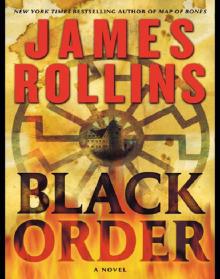 Black Order
Black Order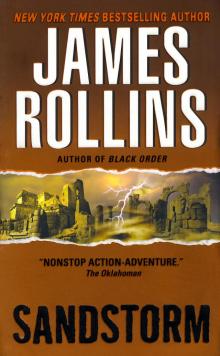 Sandstorm
Sandstorm Ghost Ship
Ghost Ship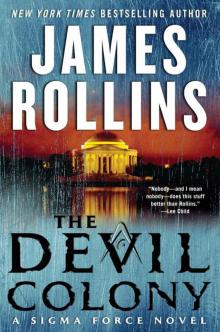 The Devil Colony
The Devil Colony Subterranean
Subterranean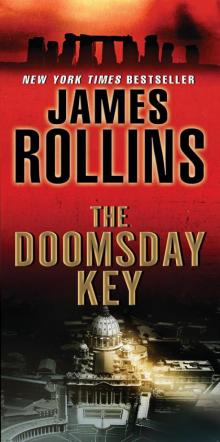 The Doomsday Key
The Doomsday Key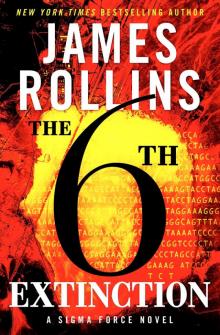 The 6th Extinction
The 6th Extinction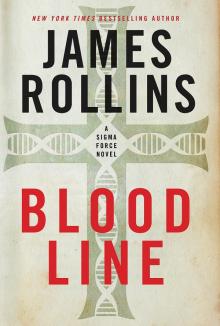 Bloodline
Bloodline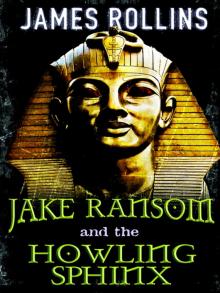 Jake Ransom and the Howling Sphinx
Jake Ransom and the Howling Sphinx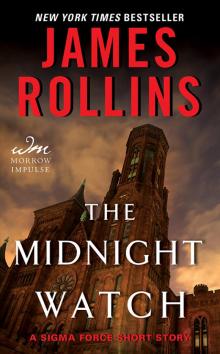 The Midnight Watch
The Midnight Watch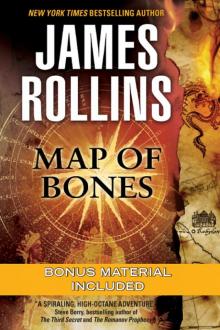 Map of Bones
Map of Bones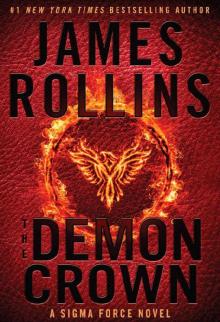 The Demon Crown
The Demon Crown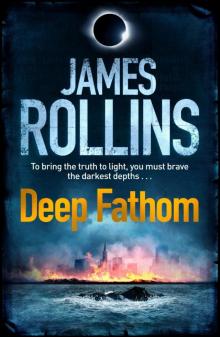 Deep Fathom
Deep Fathom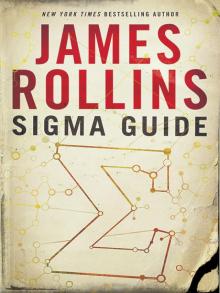 Sigma Guide
Sigma Guide Kowalski's in Love
Kowalski's in Love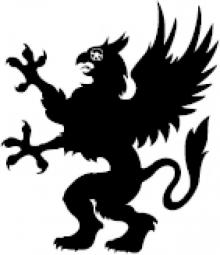 Jake Ransom and the Skull King's Shadow
Jake Ransom and the Skull King's Shadow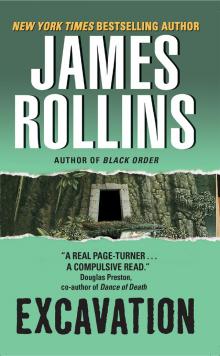 Excavation
Excavation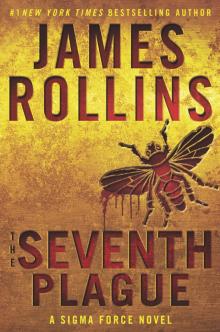 The Seventh Plague
The Seventh Plague Altar of Eden
Altar of Eden Unrestricted Access: New and Classic Short Fiction
Unrestricted Access: New and Classic Short Fiction Indiana Jones and the Kingdom of the Crystal Skull
Indiana Jones and the Kingdom of the Crystal Skull Crucible
Crucible The Eye of God
The Eye of God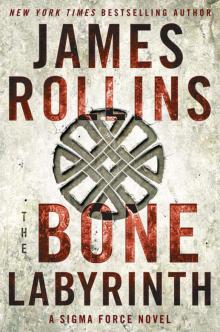 The Bone Labyrinth
The Bone Labyrinth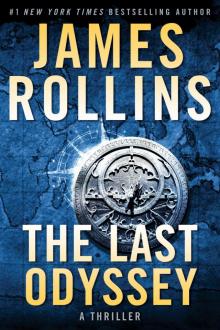 The Last Odyssey: A Thriller
The Last Odyssey: A Thriller Unrestricted Access
Unrestricted Access Amazonia
Amazonia Blood Brothers: A Short Story Exclusive
Blood Brothers: A Short Story Exclusive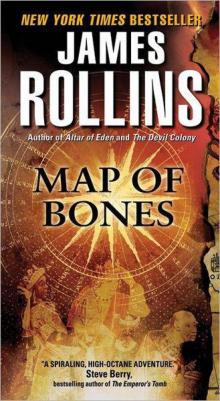 Map of Bones: A Sigma Force Novel
Map of Bones: A Sigma Force Novel The Skeleton Key (sigma force)
The Skeleton Key (sigma force)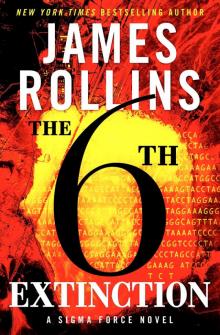 Sigma Force 10 - The Sixth Extinction
Sigma Force 10 - The Sixth Extinction Innocent Blood
Innocent Blood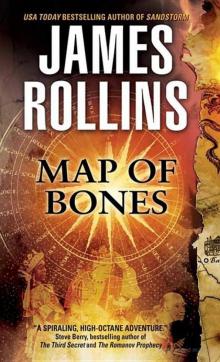 Map of Bones sf-2
Map of Bones sf-2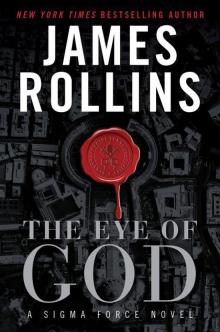 The Eye of God: A Sigma Force Novel
The Eye of God: A Sigma Force Novel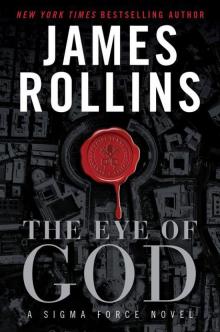 The Eye of God: A Sigma Force Novel sf-9
The Eye of God: A Sigma Force Novel sf-9 The Pit
The Pit Indiana Jones and the The Kingdom Of The Crystal Skull
Indiana Jones and the The Kingdom Of The Crystal Skull The Last Oracle (2008) sf-5
The Last Oracle (2008) sf-5 City of Screams
City of Screams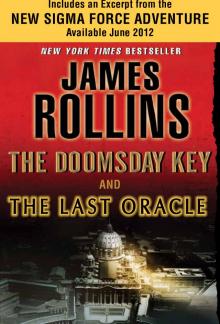 The Doomsday Key and The Last Oracle with Bonus Excerpts
The Doomsday Key and The Last Oracle with Bonus Excerpts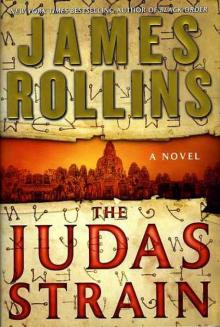 The Judas Strain sf-4
The Judas Strain sf-4 Blood Infernal
Blood Infernal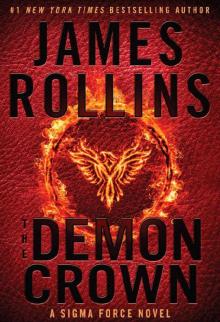 The Demon Crown: A Sigma Force Novel
The Demon Crown: A Sigma Force Novel War Hawk: A Tucker Wayne Novel
War Hawk: A Tucker Wayne Novel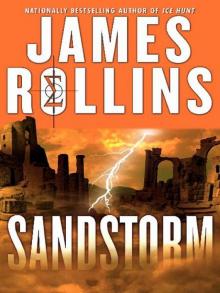 SANDSTORM sf-1
SANDSTORM sf-1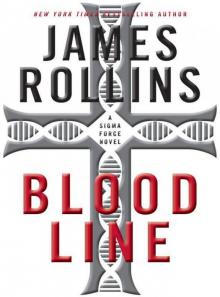 Bloodline: A Sigma Force Novel
Bloodline: A Sigma Force Novel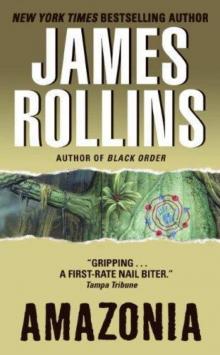 Amazonia: a novel
Amazonia: a novel The Last Oracle: A Sigma Force Novel
The Last Oracle: A Sigma Force Novel City of Screams (the order of the sanguines)
City of Screams (the order of the sanguines) Ghost Ship: A Sigma Force Short Story
Ghost Ship: A Sigma Force Short Story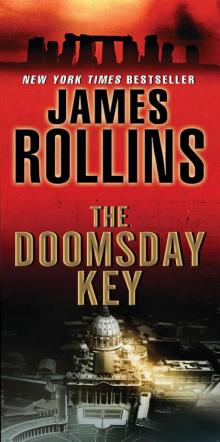 The Doomsday Key: A Sigma Force Novel
The Doomsday Key: A Sigma Force Novel